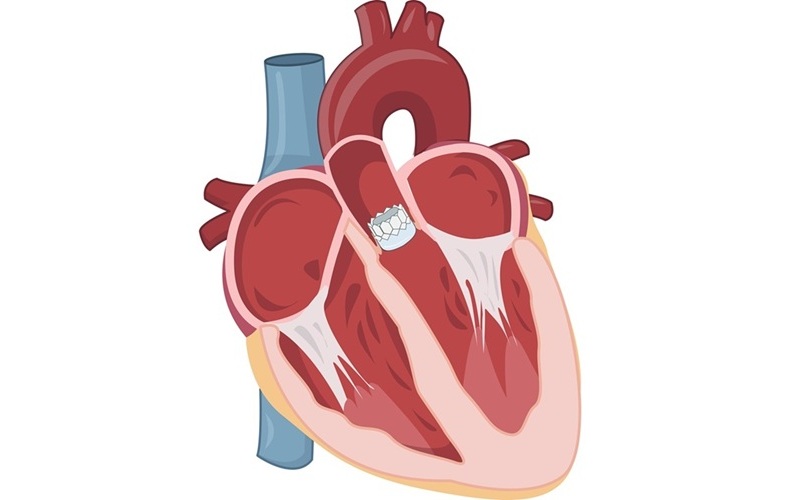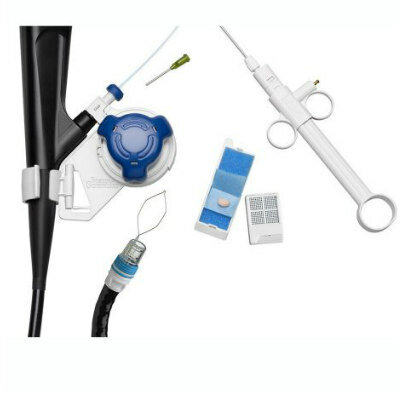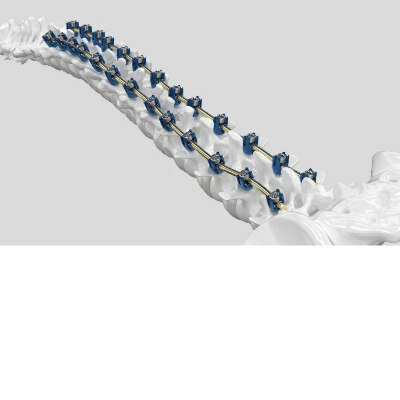Database Analysis Helps Identify “Sweet Spot” for Safe Surgery after Heart Attack
|
By HospiMedica International staff writers Posted on 06 Nov 2024 |

The 2014 perioperative guidelines from the American College of Cardiology and the American Heart Association recommend waiting 60 days after a heart attack before proceeding with elective noncardiac surgery. This recommendation was derived from a study involving 500,000 patients between 1999 and 2004. Most deaths or significant complications that occur post-surgery happen within the first 30 days of recovery, prompting perioperative teams to work diligently to mitigate these risks. Aging patients frequently present with multiple acute or chronic conditions, which challenges physicians to balance the risks associated with surgical care against the patients' expectations for quality of life. A new study now suggests that postponing elective procedures by three to six months after a heart attack may lower the risk of complications for older adults. This research, published in JAMA Surgery, offers critical insights that could lead to updates in decision-making guidelines that have relied on data from two decades ago.
Conducted by researchers at the University of Rochester (Rochester, NY, USA), the study revealed that older adults face double or triple the risk of life-threatening complications—such as debilitating strokes or subsequent heart attacks—if they undergo elective noncardiac surgeries too soon after experiencing a heart attack. A comprehensive analysis of the Medicare database, which includes 5.2 million surgeries from 2017 to 2020 involving patients aged 67 and older, indicates that delaying surgery for three to six months after the most common type of heart attack, known as a non-ST-segment elevation myocardial infarction (NSTEMI), could be beneficial. The researchers aim to identify the “sweet spot” for safely scheduling additional surgical procedures in this high-risk group.
“The data physicians are using for patient care decisions today is outdated. Given the advances in care and the ever-changing mix of patients, clinicians need the latest information,” said Laurent Glance, MD, lead author and professor of Anesthesiology and Perioperative Medicine and Public Health Sciences at the University of Rochester Medical Center.
Latest Critical Care News
- Mechanosensing-Based Approach Offers Promising Strategy to Treat Cardiovascular Fibrosis
- AI Interpretability Tool for Photographed ECG Images Offers Pixel-Level Precision
- AI-ECG Tools Can Identify Heart Muscle Weakness in Women Before Pregnancy
- AI Model Analyzes Patient Data to Diagnose Multiple Sclerosis With 90% Accuracy
- Magnetically Navigable Microparticles Enable Targeted Drug Delivery
- AI-Powered Algorithm Automates Analysis of Coronary Stents After Implantation
- New Stroke Risk Scoring System to Help Avoid Unnecessary Surgeries
- Wearable Device Tracks Individual Cells in Bloodstream in Real Time
- Drug Delivery System Uses Ultrasound-Activated Nanoparticles to Destroy Bacterial Biofilms
- New Potent Injectable Therapy Could Prevent Heart Failure After Heart Attack
- Hospital-Based System Combines AI and Genomic Surveillance to Quickly Detect Infectious Disease Outbreaks
- New Approach to Visualizing Blood Pressure Data Can Help Better Manage Hypertension Patients
- Breakthrough AI Technology Accurately Assesses Heart Failure Severity
- Smart Bandage Monitors Chronic Wounds in Human Patients
- AI Identifies Patients with Increased Lung Cancer Risk Up To 4 Months Earlier
- Next Gen Hemodynamic Monitoring Solution Provides AI-Driven Clinical Decision Support
Channels
Surgical Techniques
view channel
Bioprinted Aortas Offer New Hope for Vascular Repair
Current treatment options for severe cardiovascular diseases include using grafts made from a patient's own tissue (autologous) or synthetic materials. However, autologous grafts require invasive surgery... Read more
Early TAVR Intervention Reduces Cardiovascular Events in Asymptomatic Aortic Stenosis Patients
Each year, approximately 300,000 Americans are diagnosed with aortic stenosis (AS), a serious condition that results from the narrowing or blockage of the aortic valve in the heart. Two common treatments... Read more
New Procedure Found Safe and Effective for Patients Undergoing Transcatheter Mitral Valve Replacement
In the United States, approximately four million people suffer from mitral valve regurgitation, the most common type of heart valve disease. As an alternative to open-heart surgery, transcatheter mitral... Read morePatient Care
view channel
Portable Biosensor Platform to Reduce Hospital-Acquired Infections
Approximately 4 million patients in the European Union acquire healthcare-associated infections (HAIs) or nosocomial infections each year, with around 37,000 deaths directly resulting from these infections,... Read moreFirst-Of-Its-Kind Portable Germicidal Light Technology Disinfects High-Touch Clinical Surfaces in Seconds
Reducing healthcare-acquired infections (HAIs) remains a pressing issue within global healthcare systems. In the United States alone, 1.7 million patients contract HAIs annually, leading to approximately... Read more
Surgical Capacity Optimization Solution Helps Hospitals Boost OR Utilization
An innovative solution has the capability to transform surgical capacity utilization by targeting the root cause of surgical block time inefficiencies. Fujitsu Limited’s (Tokyo, Japan) Surgical Capacity... Read more
Game-Changing Innovation in Surgical Instrument Sterilization Significantly Improves OR Throughput
A groundbreaking innovation enables hospitals to significantly improve instrument processing time and throughput in operating rooms (ORs) and sterile processing departments. Turbett Surgical, Inc.... Read moreHealth IT
view channel
Printable Molecule-Selective Nanoparticles Enable Mass Production of Wearable Biosensors
The future of medicine is likely to focus on the personalization of healthcare—understanding exactly what an individual requires and delivering the appropriate combination of nutrients, metabolites, and... Read more
Smartwatches Could Detect Congestive Heart Failure
Diagnosing congestive heart failure (CHF) typically requires expensive and time-consuming imaging techniques like echocardiography, also known as cardiac ultrasound. Previously, detecting CHF by analyzing... Read moreBusiness
view channel
Expanded Collaboration to Transform OR Technology Through AI and Automation
The expansion of an existing collaboration between three leading companies aims to develop artificial intelligence (AI)-driven solutions for smart operating rooms with sophisticated monitoring and automation.... Read more
















